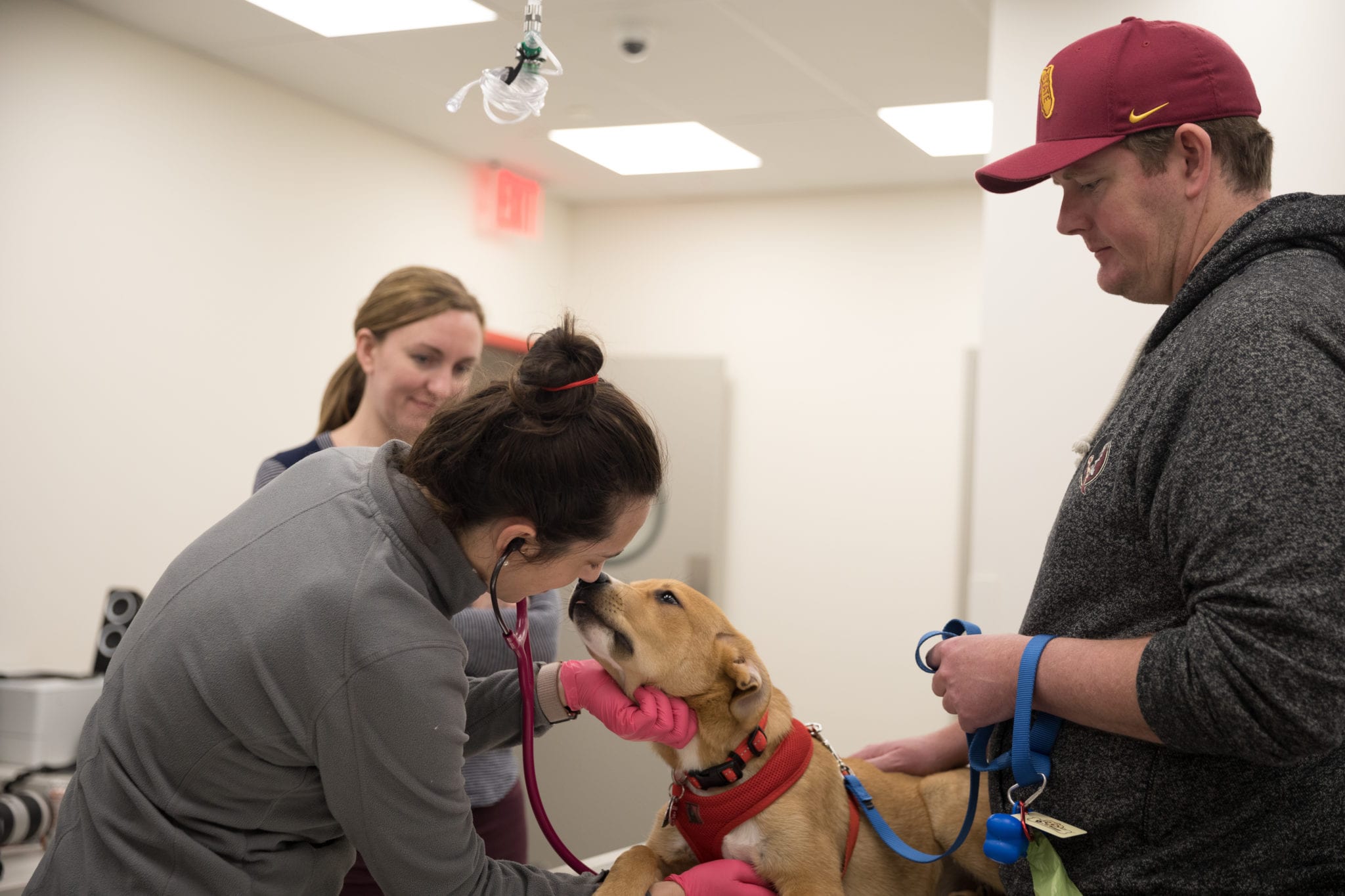
Water Safety for Pets: Tips Every Pet Parent Should Know
Dr. Keith Mihansky
Call & Speak with a doctor Open 24/7, Even Holidays!
Walk in today for:
Emergencies
Point-of-Care Ultrasound
Urgent Care
X-Rays
Diagnostics + Testing
End-of-Life Care
Surgery
Treatment + Hospitalization
When summer hits, pets love to make a splash with their parents! And just like parents of little humans, responsible pet owners need to educate themselves on the best ways to play it safe in the water with their furry friends.
Let’s dive into water safety tips and guidelines for those who care for our adventurous pets. With the help of this info, you can be prepared for the beach, river, lake, and pool with your little one!
TEACH YOUR PET TO SWIM: LEARNING BEFORE LEAPING
Before going near any body of water, your pet first needs to be taught how to swim. While swimming is fairly instinctive for most animals, practicing swimming with your pet prevents injury and emergencies. Do it a number of times until your pet is comfortable and able to swim in the water. It’s easy and it’s fun! Here’s how:
- Take your pet into the water with you. Calm or still water, like a pool or lake, with little to no current is best
- Be aware of paws and claws that can scratch you, as their first dip into a body of water may trigger fear. Encourage, rather than command. If your pet is too nervous or shaky, you might just have a land lover who needs to sit out the water activities
- Stick to a shallow area. You should be able to plant your feet firmly on the ground so you can support your pet without struggling yourself
- Wait for your pet to start paddling, then place a hand of support under his chest and abdomen so he can learn how to float properly
It may take a few tries, but your pet should become a natural swimmer in no time.
PAY ATTENTION TO CURRENTS AND TIDES
Be wary of waves! Currents and tides are just as dangerous to pets as they are to humans. Even pets who know how to swim very well can be swept away by rip tides or strong currents if you aren’t on the lookout. Tips to remember:
- Pay close attention to any tide warnings for your destination.
- Always check the current strength in any body of water before letting your pet swim. Remember, your pet is not as strong as you and may not be able to combat a current that you find manageable.
- Do not let your pet go out too far from the shore in any body of water. Ensure that he will be able to make his way back safely if the current becomes too strong.
SUPER PARENTS SUPERVISE THEIR PETS AROUND WATER
Being in the water with your pet is an adventure and you need to be the captain. That means never leave your pet in the water unattended for any period of time. Once your pet gains confidence in swimming, he may want to swim out further. Be sure they’re where you can keep a close eye on him.
It’s also worth saying, Captain, that if you yourself cannot swim, be sure to have a family member or friend with you who can.
SAFETY TIPS BEFORE A TAKING A DIP
Lucky you, you have a swimming pool in your backyard and you can’t wait to play in it with your fur baby! Here are your safety tips for pet owners with pools:
- Install a fence around the pool to make sure your pet does not fall in or attempt to swim without supervision. This can prevent serious accidents, including drowning, which can be life threatening.
- Make sure to keep your pool covered when not in use to avoid accidental drowning or dry drowning. Even a short time in the water can be fatal for pets.
- Have your nearest VEG as a contact in your phone. This can save precious time later in an emergency.
USE A PET LIFE VEST
Any pet who is going to be spending time in a body of water should wear a life vest. A pet’s life vest should also have a built-in handle on top of it. This makes it easier to grab hold of the pet and hoist him out of the water if he becomes fatigued, stressed, or has any difficulty.
RINSE YOUR PET OFF AFTER BEING IN ANY BODY OF WATER
When your pet swims, he can be exposed to chlorine, salts, and other skin irritants. Ideally, you should give your pet a bath after spending time in any body of water. If it’s not possible—like if you are camping or on vacation and can’t bathe your pet easily—a thorough rinse will work in a pinch.
KEEP YOUR PET AWAY FROM DEAD FISH, ALGAE, AND FISHING GEAR
Water can run amok with yuk. Avoid an emergency by keeping your pet away from the following:
- Algae – When ingested, algae can cause pets to get sick to their stomach
- Dead fish – Your pet may be tempted to take a bite, but dead fish could cause illness
- Fishing gear – Lines, bait, and traps may cause injuries and can be life threatening if ingested
VEG IS ALWAYS OPEN FOR ANIMAL EMERGENCIES
By following the above tips, you can feel more confident spending time with your pet this summer. Be sure to call or come in and see a top-quality emergency veterinarian at VEG if anything should go wrong with your pet while in the water. No appointments taken, we’re here 24/7 to help dogs, cats, birds, and exotics. We’ll prioritize your pet’s needs and you get to stay by their side the entire time.

